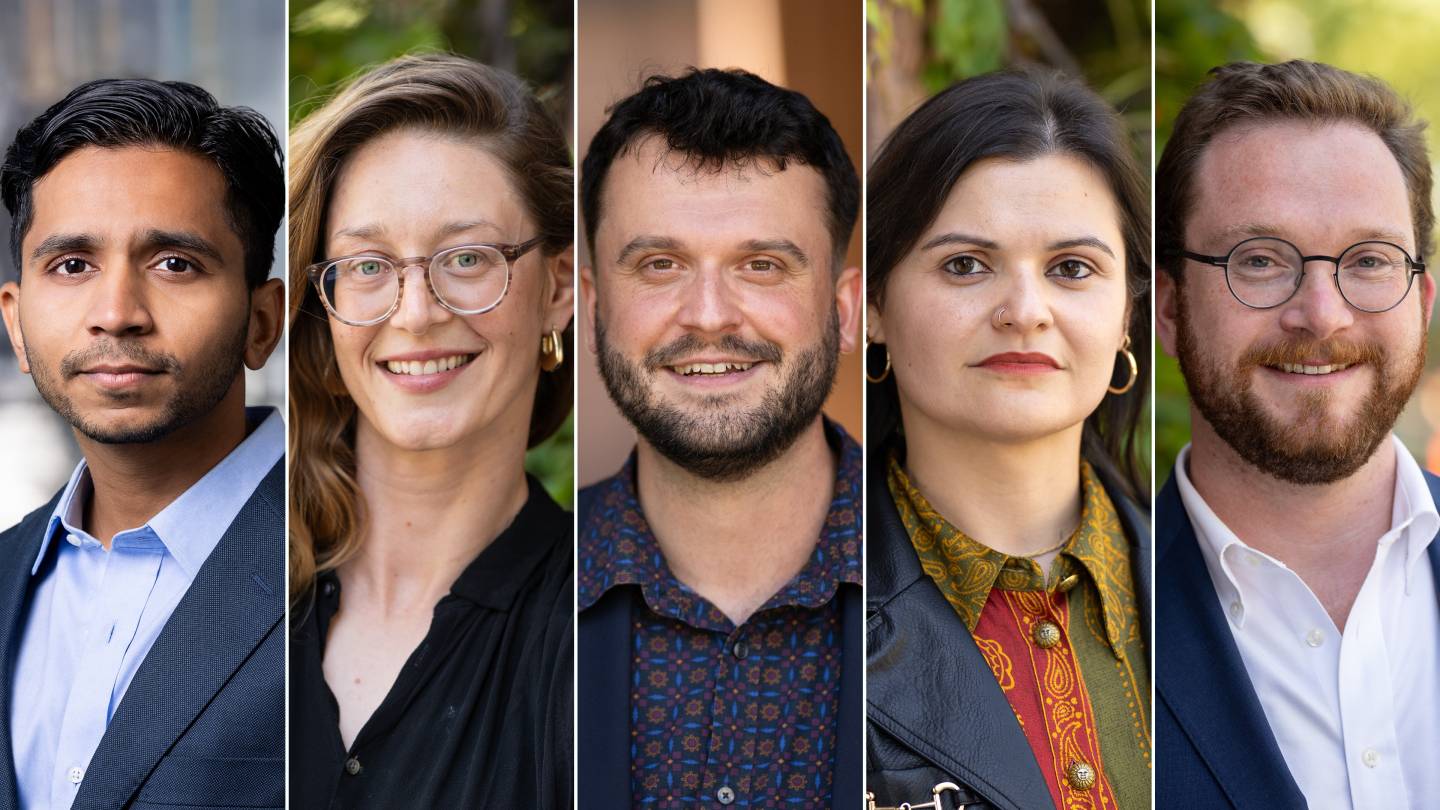In the autumn, five new researchers joined the Fellowship in Free Arts. Society is a multidisciplinary community of the postdoctoral researcher and Princeton Faculty, which promotes vibrant and innovative multidisciplinary research, teaching and collaboration in humanities and humanities.
Founded in 1999, as a gift, the late celebration, led by Lloyd Cotsen and the Humanities Council, offers excellent researchers with a recent doctorate. The opportunity to improve their teaching and research over three years. Fellows regularly meet formal and informal discussions, seminars, workshops and reading groups to continue new knowledge and understanding between disciplines.
Society is committed to building a scientific community with extensive experiences and perspectives, and to create research, discussion and pioneering scholarship and teaching in the community environment. Future Kohort, including society, has wished 128 scholarships for Princeton and an even greater number of members of the Princeton Faculty.
“We have a wonderful new scholarship that will join us this year,” said Yelena Baraz, the leader of society. “Their research profile emphasizes the chronological, geographical and methodological width of society. They are already active in the community here in Princeton, and I look forward to hearing them to present their work at our weekly seminars.” Baraz is a professor of Latin Latin Language and Literature at the Kennedy Foundation and professor of classics.
Whole group 13 Cotsen scholarship Many disciplines have been drawn in humanities and humanities social sciences and contains one astrophysics. Fellows names are called research researchers in the Council of the Council of Humanities and as lecturers of the Academic host departments, teaching one course towards their own research.
While in Princeton, they are interested in the campus community in many ways: counseling and mentoring for postgraduate students, participating in academic programs and panels, presenting their research, developing new courses and teaching with faculty members. The new Cotsen-stimuli of the 2025-28 cohort is:
Appointed in the departments of astrophysics and geoscience, the Gupta is a theoretical and computational physicist who explores the origin and development of planets like the Earth and Neptune. He combines mathematical modeling of the planetary scale processes with quantum metricing simulations and machine learning algorithms to reveal the physical and chemical mechanisms of the planet and interior to understand how such processes can lead to life. He earned a doctorate in planetary science from the University of California from Angeles.
Nominated in English, Horst is a written researcher who is interested in ways in which stories and storytelling shape economic, culture and environmental policy throughout the south. His current research combines critical development studies in African literary history to show how the report provides information on the theory and practice of economic development. In Princeton, he works on his first book -length project, which charts the intricate staggering between development institutions and African literary production during the post -independence period of the complex network. Horst earned a doctorate in English and comparative literature at the University of Columbia. This fall, he will teach the course “read the World Bank”.
Scheunchen, appointed to the Department of Local Eastern Research, is a historian of Local East who is interested in the establishment of an Islamic state, documentary culture and justice. In Princeton, he develops a monograph on how peasants, illiterate people and women navigated Egypt law after the seventh century Islamic conquest. Scheunchen earned a doctoral degree in Local Eastern studies at the University of Chicago. This fall, he teaches “digital humanities for historians and other researchers”.
Valdés, who has been appointed in history, is a historian of 20th century history with employment bridges, labor, migration, and gender and sexuality studies. His current book project, “clocked and locked: race, gender inconsistency and a set of criminalization in the 20th century in New York,” offers grassroots social history and Latino/E gender inconsistency and Trans New York. Valdés received a doctoral degree in the history of the Rutgers University. This fall, he teaches the ” back -up of a queen for the course? ‘Breed and sex inconsistency in US history. ”
The Zweig, who is appointed in the classic department, studies Latin literature, especially the late ancient poetry and early medieval. He currently writes monograph on receiving biblical emigration in the Latin verse. This project emphasizes the innovation of late Roman and their followers, focusing on a subject that was customized by the ancient Eastern literary networks and is redefined as a memory that is central to the formation of Christian identity. Zweig earned a doctorate. In classics, focusing on medieval Latina from Harvard University. This fall, he will teach group teaching the course “multidisciplinary approaches to Western culture”.

